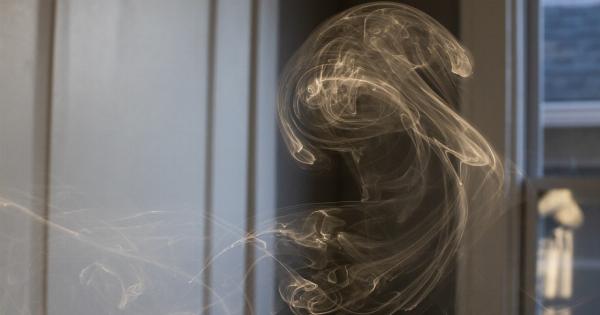Secondhand smoke refers to the combination of smoke exhaled by smokers and the smoke emitted from burning cigarettes, cigars, or pipes.
While most people are aware of the adverse effects of secondhand smoke on humans, it is important to understand that it also poses a significant threat to our furry friends. Pets, especially dogs and cats, are prone to the harmful effects of secondhand smoke due to their close proximity to smokers and their habit of licking their fur, which can accumulate toxins.
This article explores how secondhand smoke affects our pets and the steps we can take to protect them from this dangerous environmental hazard.
The Dangers of Secondhand Smoke for Pets
1. Respiratory Problems:.
Just like humans, exposure to secondhand smoke can cause various respiratory issues in pets. When pets inhale smoke-filled air, their lungs can become irritated, leading to coughing, wheezing, and difficulty breathing.
This prolonged exposure can worsen over time and even result in chronic bronchitis or pneumonia.
2. Increased Risk of Cancer:.
Pets living in a smoke-filled environment have an increased risk of developing cancer, particularly lung cancer.
This is because the carcinogenic substances present in tobacco smoke can accumulate in their lungs and other vital organs, causing abnormal cell growth and potentially leading to the development of tumors.
3. Allergic Reactions:.
Secondhand smoke contains numerous chemical compounds that can trigger allergic reactions in both humans and pets. Pets may develop skin rashes, itchiness, and general discomfort due to the exposure to these allergens.
4. Eye and Nose Irritation:.
Animals with sensitive eyes, such as rabbits and guinea pigs, are prone to eye irritation caused by secondhand smoke. The chemicals in smoke can irritate the delicate tissues in their eyes and nose, leading to redness, itchiness, and discharge.
The Impact on Different Pets
1. Dogs:.
Dogs are in constant close proximity to their owners, which puts them at a greater risk of inhaling secondhand smoke.
They often share living spaces with smokers and can develop respiratory problems, allergies, and even nasal or lung cancer due to prolonged exposure.
2. Cats:.
Cats are meticulous groomers and tend to lick their fur regularly.
This grooming behavior increases their exposure to smoke particles accumulated on their fur, making them susceptible to a range of health issues, including respiratory infections, oral cancer, and lymphoma.
3. Birds:.
Birds are extremely sensitive to airborne toxins, including those present in smoke.
The delicate respiratory systems of birds make them highly vulnerable to secondhand smoke, leading to respiratory infections, eye irritation, and even fatal conditions like pneumonia.
4. Small Mammals:.
Small mammals such as rabbits, hamsters, and guinea pigs can suffer from respiratory problems and eye irritation caused by secondhand smoke.
Their small size and fast metabolism make them particularly susceptible to the detrimental effects of smoke inhalation.
Protecting Your Pets from Secondhand Smoke
1. Designated Smoking Area:.
Designate a specific smoking area away from your pets’ living spaces. This helps minimize their exposure to secondhand smoke and reduces the amount of smoke particles that settle on their fur or in their habitats.
2. Smoke Outside:.
If you must smoke, always go outside and away from your pets before lighting up. This prevents direct exposure to secondhand smoke and reduces the risk of your pets inhaling the toxic fumes.
3. Ventilation:.
Ensure your home is well-ventilated by opening windows and using fans or air purifiers. This helps dissipate smoke and reduces the concentration of harmful chemicals in the air that your pets breathe.
4. Regular Grooming:.
Regularly groom your pets to remove any residual smoke particles that may have settled on their fur. This can help reduce their exposure to toxins while also keeping their coats clean and free from potential irritants.
5. Quit Smoking:.
Quitting smoking is the best way to protect your pets from the harmful effects of secondhand smoke. Not only will it benefit their health, but it will also improve your own well-being. Seek support and resources to help with the quitting process.
Conclusion
Secondhand smoke poses a significant threat to our beloved pets. The toxins and carcinogens present in tobacco smoke can lead to a range of health issues, including respiratory problems, increased cancer risk, and allergic reactions.
It is our responsibility as pet owners to minimize their exposure to secondhand smoke and provide them with a healthy and safe environment. By implementing the suggested measures and considering quitting smoking for their well-being, we can ensure that our pets lead long, happy, and smoke-free lives.





























